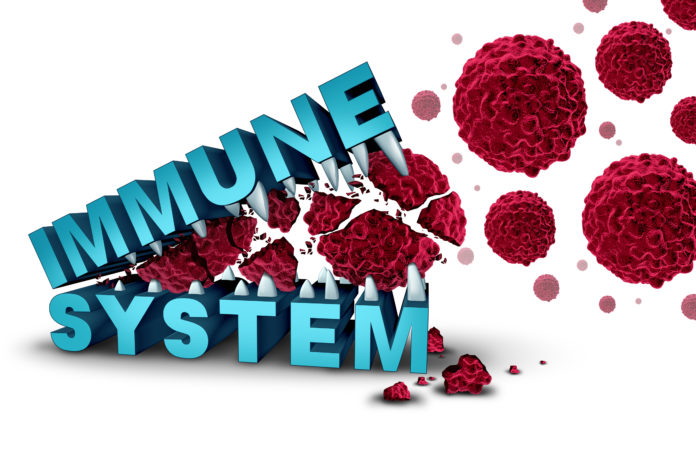Overview
Immunotherapy is one kind of cancer treatment that helps the immune system fight cancer. The immune system helps our body fight infections and other disease conditions. It is made up of white blood cells including organs and tissues of your lymphatic system. Immunotherapy is a kind of biological therapy, a type of treatment, which uses substances made from living organisms to treat cancer.
How the Immune System Fights Cancer?
The immune system identifies and destroys abnormal cells in your body, thus curbing the growth of many cancers. Sometimes, immune cells are found in and around tumors. Such cells, called TILs (tumor-infiltrating lymphocytes), indicate that the immune system is responding to the tumor.
While immune system may prevent or slow cancer growth, cancer cells do find ways to avoid destruction by your immune system. For instance, cancer cells can:
- Have genetic changes which make them less visible to your immune system
- Have proteins on their surface which may turn off immune cells
- Change normal cells around the tumor so they interfere with how your immune system responds to cancer cells
Immunotherapy can help your immune system to act better against cancer.
What are the Different Types of Immunotherapy?
● Immune checkpoint inhibitors
Immune checkpoint inhibitors are medications that block immune checkpoints. These checkpoints are a normal part of your immune system and keep your immune responses from being too strong. By blocking them, these medicines allow immune cells to respond more strongly to cancer.
Some of these checkpoints are under research for different types of cancer treatment. Clinical trials show that people with metastatic melanoma, Hodgkin’s lymphoma, neck, kidney, or lung cancer can be treated with immunotherapy.
Also Read About: Head and Neck Cancers
- T-cell transfer therapy
Another type of immunotherapy is T-cell transfer therapy, also known as adoptive cell therapy, or adoptive immunotherapy. In this therapy, your immune cells are taken out from the tumor and those that are most active against the cancer are selected or are changed in the laboratory to better attack the cancer cells, grown in large lots (batches), and put back into the body through a needle in one of your vein.
- Monoclonal antibodies
The human body has certain antibodies that help in fighting diseases. Monoclonal antibodies are proteins present in the immune system or are created in the laboratory. This is made to bind to specific targets on the cancer cells.
Some of these antibodies mark cancer cells in a way that they can be easily visible to the immune cells, which can destroy them. These kinds of monoclonal antibodies work as immunotherapy, helping to battle cancer.
This type of therapy is also known administration of therapeutic antibodies.
- Treatment vaccines
Cancer treatment vaccinations are a kind of immunotherapy that treats cancer by strengthening natural defenses of your body against the cancer. Unlike cancer prevention vaccinations, the cancer treatment vaccines are designed and developed for use in individuals who are already having cancer. These vaccines work against the cancer cells and not against something which causes cancer.
Such vaccines becomes option for treatment because cancer cells have substances known as tumor-associated antigens, which are not present in the normal cells or, if present, they are at lower levels. Treatment vaccines can help the immune system learn to recognize and react to such antigens and destroy cancer cells that contain them. This therapy is used in cancers like the prostate cancer .
- Immune system modulators
Using immune system modulators helps in enhancing the immune response against cancer.
Types of immune-modulating agents include:
Cytokines, such as:
- Interferons (INFs)
Immunomodulatory drugs (also known as biological response modifiers) stimulate the immune system. They include medications such as Imiquimod, Thalidomide, lenaliodomide, and pomalidomide that leads cells to release IL-2. They can also stop tumors from forming new blood vessels.
How is Immunotherapy Administered?
Different types of immunotherapy have different ways of being administered. The patients, based on the kind of procedure being performed can be given the therapy as:
- Intravenous (IV). This form of immunotherapy is directly injected through a needle into a vein.
- Oral. This form of immunotherapy is through pills or capsules
- Topical. This type of immunotherapy works with ointments, which are used to treat early-stage skin cancer.
- ● Intravesical. This immunotherapy is given directly into the bladder for bladder cancers.
Where can You Receive Immunotherapy?
If diagnosed with any form of cancer, and the oncologist advises you for immunotherapy, then it can be given at the clinic, hospital, or outpatient department.
Call 1860-500-1066 to book an appointment
Conclusion
From the past few years, immunotherapy has become an integral part in terms of cancer treatment. With the increasing rate of cancer and the betterment of immunotherapy, researchers are testing new immunotherapy treatments through which the immune system can fight and destroy cancer cells at a faster pace.
Medical practitioners believe that immunotherapy has been the game-changer in terms of treating several cancers. With this treatment, life expectancy improves.
Frequently Asked Questions (FAQs)
- How often does a patient have to go through immunotherapy?
Immunotherapy duration depends on several factors, such as:
- Type of cancer
- Stage of cancer
- Type of immunotherapy
- How the body reacts to the cancer treatment
Depending on the patient and form of treatment, it can be daily, weekly, or once a month. Sometimes, depending on the condition, immunotherapy is conducted in cycles, where the body is given sufficient time to recover.
- How do we know immunotherapy is working?
By conducting several tests, your specialist can check how beneficial immunotherapy is for your present condition. The medical tests include blood tests, biopsy, or different types of scans.
- What type of cancers are treated from immunotherapy?
Immunotherapy has been used in the treatment of several cancers such as those of the skin, bladder, liver, lung, esophagus, prostate, as well as sarcomas, leukemias and lymphomas.


















